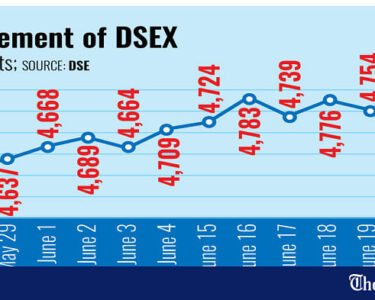The prospect of a stock market crash has arguably become more tangible in recent weeks. Investors are increasingly concerned about persistent inflationary pressures, the impact of tightening monetary policies, and geopolitical uncertainties that continue to weigh on market sentiment.
However, the risk of a stock market crash is a constant presence rather than a new phenomenon. As demonstrated by the sharp bear market in March 2020, the UK stock market can experience sudden, severe declines without much warning, causing significant short-term losses for investors.
This means that pre-identified risks are not always a prerequisite for a major market downturn. The threat of a market decline is perpetually on the horizon for UK investors, reminding us that no bull market lasts forever.
The UK stock market has a long and well-documented history of boom and bust cycles. The last bear market occurred during the COVID-19 pandemic crash in early 2020. Before that, notable declines exceeding 20% were seen during the global financial crisis in 2008/09 and the bursting of the dot-com bubble in the early 2000s.
Given this context, a market correction or crash in the future should not surprise seasoned investors. The stock market cycle, characterised by periods of growth followed by sharp declines, is a fundamental dynamic. Neither growth phases nor downturns are permanent.
Some investors might argue that “this time is different,” pointing to lingering trade tensions from policies like President Trump’s tariffs, ongoing geopolitical conflicts, especially the high tensions between Iran and Israel, and persistent inflation driving high interest rates. While these factors have created a complex backdrop supporting certain market valuations, history shows that no upward trajectory in the stock market lasts forever.
Timing the market remains an uncertain art. With myriad ‘known unknowns’, such as inflation trends, interest rate decisions, and geopolitical tensions, and ‘unknown unknowns’ like unforeseen global events, predicting exactly when or how a crash might occur is impossible.
Right now, the UK stock market isn’t really in a bull or bear market. Investors are feeling pretty nervous because there’s a lot of uncertainty, making it hard to know how things will turn out. It’s one of those times when caution makes sense, and many people are keeping a close eye on developments.
A prudent investment approach in 2025 could be to maintain a diversified equity portfolio for long-term growth, while holding sufficient cash reserves to capitalise on potential market corrections when they arise. This strategy allows investors to benefit from ongoing market gains, yet remain prepared to act decisively during inevitable downturns.
So, while the exact timing of the next UK stock market crash is unknowable, its eventual occurrence is a certainty. Investors who acknowledge this fact, and plan accordingly, may find themselves better positioned to weather the storm and benefit from future opportunities.




